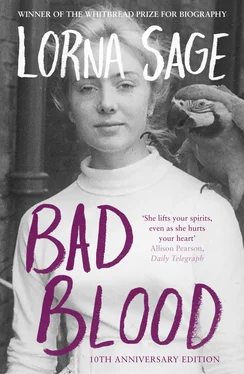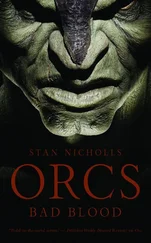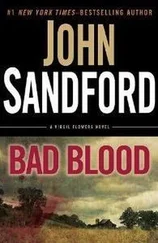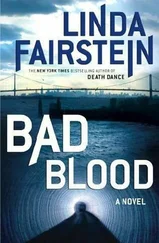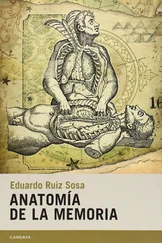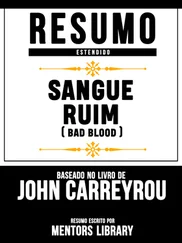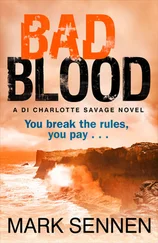The great joy of the book – and it is a joy – remains the way that this comic nightmare is delivered in the cleanest and clearest of language. As Professor of Literature at the University of East Anglia, Sage was sometimes required to be dense in her academic prose but you can really feel her exultation when she writes, as she did in her much-admired reviews in the Observer newspaper, for the Common Reader. She had a huge admiration for those authors such as Anthony Burgess who hacked to pay the bills, and a corresponding determination to reach the widest readership possible. And her talent is gloriously on show here, with that miraculous ability to conjure the Hanmer landscape, tricky turns in Britain’s post-war social development, and the inside of a priapic vicar’s brain, all without boring or baffling the reader for a moment.
Despite her scepticism about the coerciveness of certain kinds of stories, Sage does give us a happy ending of sorts in Bad Blood . She tells us how her life played out in ways that are clearly a matter of quiet pride. The Bad Blood , it seems, had finally been faced down. There was, though, one bit of the story which her sudden death in January 2001 left unfinished. She had been thinking about her memoir for so long. Now here it was, an enormous hit, making her famous around the world. What would she have done next? Another volume of autobiography? A novel even? Or more of that brilliant literary criticism which seemed to crack open the world of contemporary fiction with such deceptive ease? We will never know now and that, perhaps, provides the most tantalising ending of all.
PART ONE
I The Old Devil and His Wife
Grandfather’s skirts would flap in the wind along the churchyard path and I would hang on. He often found things to do in the vestry, excuses for getting out of the vicarage (kicking the swollen door, cursing) and so long as he took me he couldn’t get up to much. I was a sort of hobble; he was my minder and I was his. He’d have liked to get further away, but petrol was rationed. The church was at least safe. My grandmother never went near it – except feet first in her coffin, but that was years later, when she was buried in the same grave with him. Rotting together for eternity, one flesh at the last after a lifetime’s mutual loathing. In life, though, she never invaded his patch; once inside the churchyard gate he was on his own ground, in his element. He was good at funerals, being gaunt and lined, marked with mortality. He had a scar down his hollow cheek too, which Grandma had done with the carving knife one of the many times when he came home pissed and incapable.
That, though, was when they were still ‘speaking’, before my time. Now they mostly monologued and swore at each other’s backs, and he (and I) would slam out of the house and go off between the graves, past the yew tree with a hollow where the cat had her litters and the various vaults that were supposed to account for the smell in the vicarage cellars in wet weather. On our right was the church; off to our left the graves stretched away, bisected by a grander gravel path leading down from the church porch to a bit of green with a war memorial, then – across the road – the mere. The church was popular for weddings because of this impressive approach, but he wasn’t at all keen on the marriage ceremony, naturally enough. Burials he relished, perhaps because he saw himself as buried alive.
One day we stopped to watch the gravedigger, who unearthed a skull – it was an old churchyard, on its second or third time around – and grandfather dusted off the soil and declaimed: ‘Alas poor Yorick, I knew him well …’ I thought he was making it up as he went along. When I grew up a bit and saw Hamlet and found him out, I wondered what had been going through his mind. I suppose the scene struck him as an image of his condition – exiled to a remote, illiterate rural parish, his talents wasted and so on. On the other hand his position afforded him a lot of opportunities for indulging secret, bitter jokes, hamming up the act and cherishing his ironies, so in a way he was enjoying himself. Back then, I thought that was what a vicar was, simply: someone bony and eloquent and smelly (tobacco, candle grease, sour claret), who talked into space. His disappointments were just part of the act for me, along with his dog-collar and cassock. I was like a baby goose imprinted by the first mother-figure it sees – he was my black marker.
It was certainly easy to spot him at a distance too. But this was a village where it seemed everybody was their vocation. They didn’t just ‘know their place’, it was as though the place occupied them, so that they all knew what they were going to be from the beginning. People’s names conspired to colour in this picture. The gravedigger was actually called Mr Downward. The blacksmith who lived by the mere was called Bywater. Even more decisively, the family who owned the village were called Hanmer, and so was the village. The Hanmers had come over with the Conqueror, got as far as the Welsh border and stayed ever since in this little rounded isthmus of North Wales sticking out into England, the detached portion of Flintshire (Flintshire Maelor) as it was called then, surrounded by Shropshire, Cheshire and – on the Welsh side – Denbighshire. There was no town in the Maelor district, only villages and hamlets; Flintshire proper was some way off; and (then) industrial, which made it in practice a world away from these pastoral parishes, which had become resigned to being handed a Labour MP at every election. People in Hanmer well understood, in almost a prideful way, that we weren’t part of all that. The kind of choice represented by voting didn’t figure large on the local map and you only really counted places you could get to on foot or by bike.
The war had changed this to some extent, but not as much as it might have because farming was a reserved occupation and sons hadn’t been called up unless there were a lot of them, or their families were smallholders with little land. So Hanmer in the 1940s in many ways resembled Hanmer in the 1920s, or even the late 1800s except that it was more depressed, less populous and more out of step – more and more islanded in time as the years had gone by. We didn’t speak Welsh either, so that there was little national feeling, rather a sense of stubbornly being where you were and that was that. Also very un-Welsh was the fact that Hanmer had no chapel to rival Grandfather’s church: the Hanmers would never lease land to Nonconformists and there was no tradition of Dissent, except in the form of not going to church at all. Many people did attend, though, partly because he was locally famous for his sermons, and because he was High Church and went in for dressing up and altar boys and frequent communions. Not frequent enough to explain the amount of wine he got through, however. Eventually the Church stopped his supply and after that communicants got watered-down Sanatogen from Boots the chemist in Whitchurch, over the Shropshire border.
The delinquencies that had denied him preferment seemed to do him little harm with his parishioners. Perhaps the vicar was expected to be an expert in sin. At all events he was ‘a character’. To my childish eyes people in Hanmer were divided between characters and the rest, the ones and the many. Higher up the social scale there was only one of you: one vicar, one solicitor, each farmer identified by the name of his farm and so sui generis . True, there were two doctors, but they were brothers and shared the practice. Then there was one policeman, one publican, one district nurse, one butcher, one baker … Smallholders and farm labourers were the many and often had large families too. They were irretrievably plural and supposed to be interchangeable (feckless all), nameable only as tribes. The virtues and vices of the singular people turned into characteristics. They were picturesque. They had no common denominator and you never judged them in relation to a norm. Coming to consciousness in Hanmer was oddly blissful at the beginning: the grown-ups all played their parts to the manner born. You knew where you were.
Читать дальше
